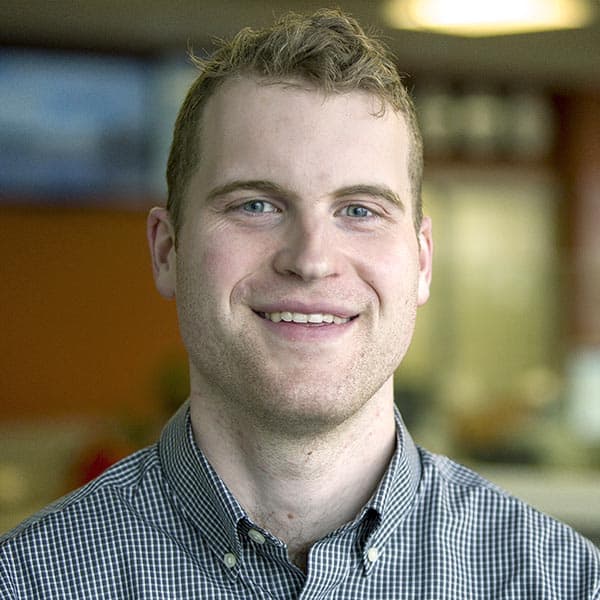Advertisement
Paris Photojournalist Recounts Capturing Notre Dame Fire: 'You Can't Allow Yourself To Feel'
Resume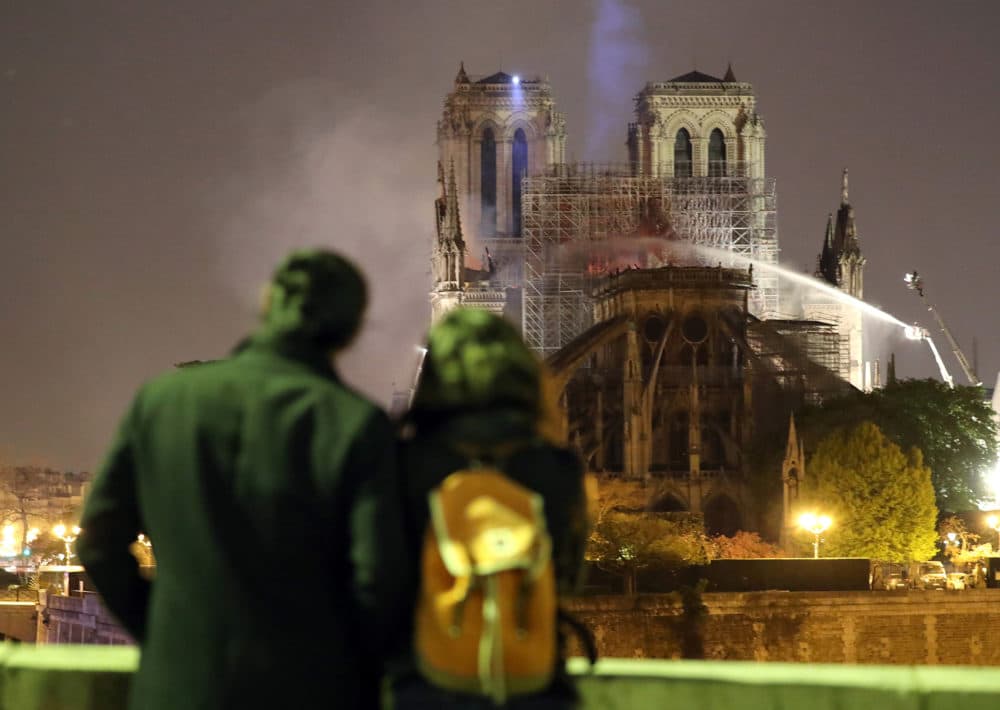
Photojournalist Maya Vidon-White has covered war and the destruction it can cause in countries around the world.
On Monday, she jumped on her scooter and rushed to cover scenes of devastation in her home city.
Parisians were aghast as they watched a fire destroy major sections of the city's centuries-old Notre Dame Cathedral. One of Vidon-White's photographs captures the moment.
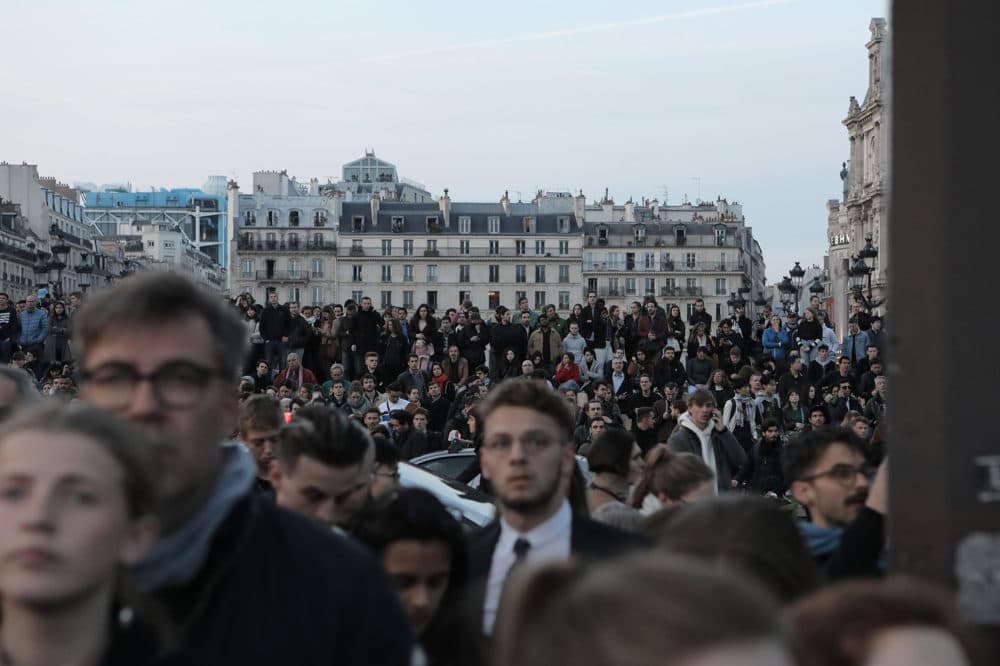
"In a case like this, as a photographer, you can't allow yourself to feel or have any emotion," Vidon-White tells Here & Now's Robin Young. "All you're looking at is the picture. And this is a way for war photographers to be able to cover this: You cannot allow yourself to think."
Firefighters extinguished the blaze early Tuesday morning. Another photograph by Vidon-White shows streams of water shooting out of two fire hoses, intersecting in the shape of a cross.
"It really reminded me of something symbolic of a church, this cross," she says. "I think if we had seen this in a movie we wouldn't have believed it."
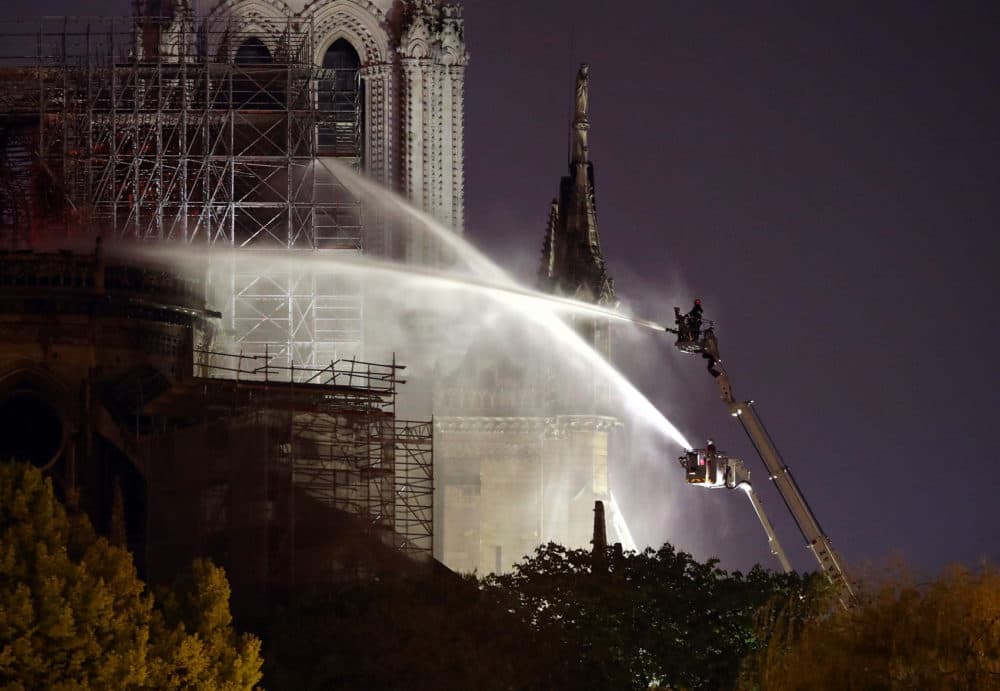
Vidon-White has covered conflict for decades, from East Timor to Gaza. But in recent years, she has captured traumatic events closer to home, like the aftermath of the 2015 terror attacks that shook France. That year, two gunmen killed 12 people in January at the satirical newspaper Charlie Hebdo. That November, 130 people were killed in a series of attacks at cafes, restaurants and the Bataclan theatre.
France places tighter restrictions on photographers than countries like the U.S. Vidon-White confronted that when she took a photo of a person killed in the November attacks. She was criminally charged and tried for the image. However, the charges against her were later dropped.
Vidon-White says she returned to Paris in search of a "more sheltered life" after years of working overseas. But aspects of her previous work have come home with her.
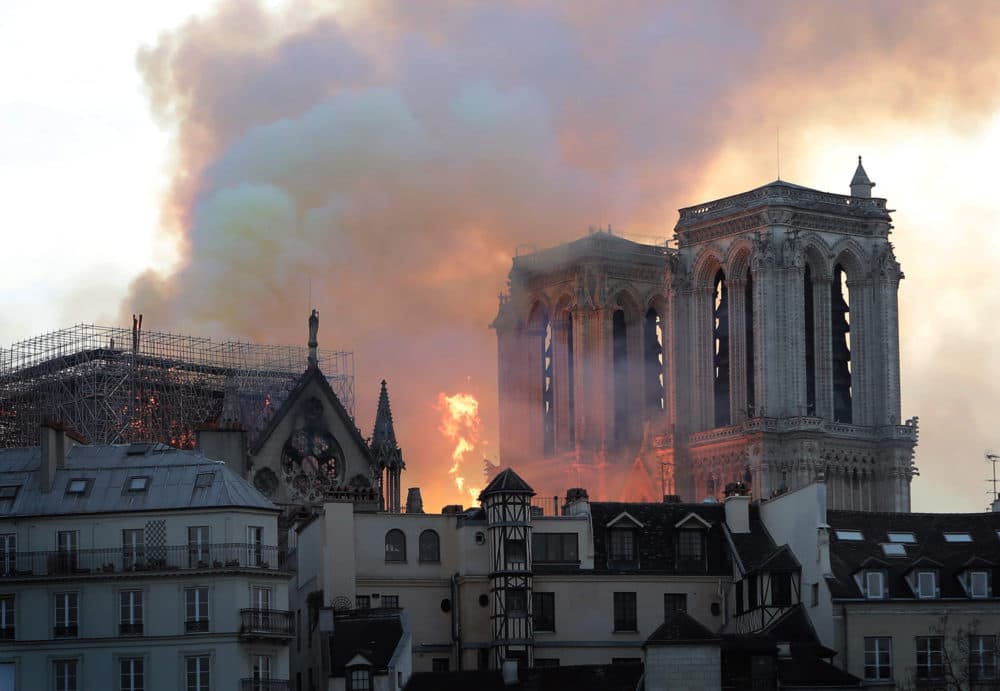
"It seems that conflict has followed me and disasters have followed me, and I never expected it," she says. "But I am trained to cover these kind of situations, to the point that I did a job that cost me months of trial. And although ... the charges were dismissed, it's a trial that deeply hurt me. But I did nothing wrong. I did my job, and I did my job like I do it anywhere in the world — I did it in Paris, too."
The outpouring among Parisians after the fire — many gathered together on city streets, some singing hymns and holding vigils — reminds Vidon-White of how people reacted after the Charlie Hebdo attack.
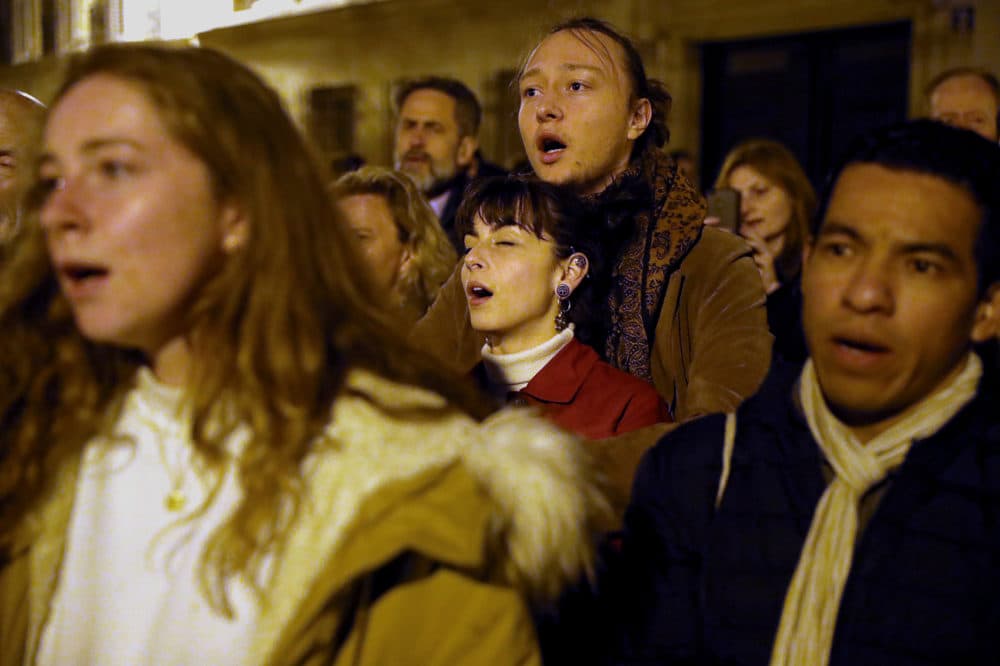
"What strikes me is that a lot of these [people] who are singing are very, very young people. And this is a face of France that you don't see unless you go to church, because the Christians are not very visible in daily life," Vidon-White says. "And there they were, witnessing a disaster among all the French residents. We all are affected by this, clearly."
As she was taking photographs of the fire, Vidon-White says she felt like she was documenting history.
"I was talking to neighbors, [asking], 'What's the day today? We have to remember that date.' April 15, 2019, is a date that will mark history for us in France — maybe in the world as well."
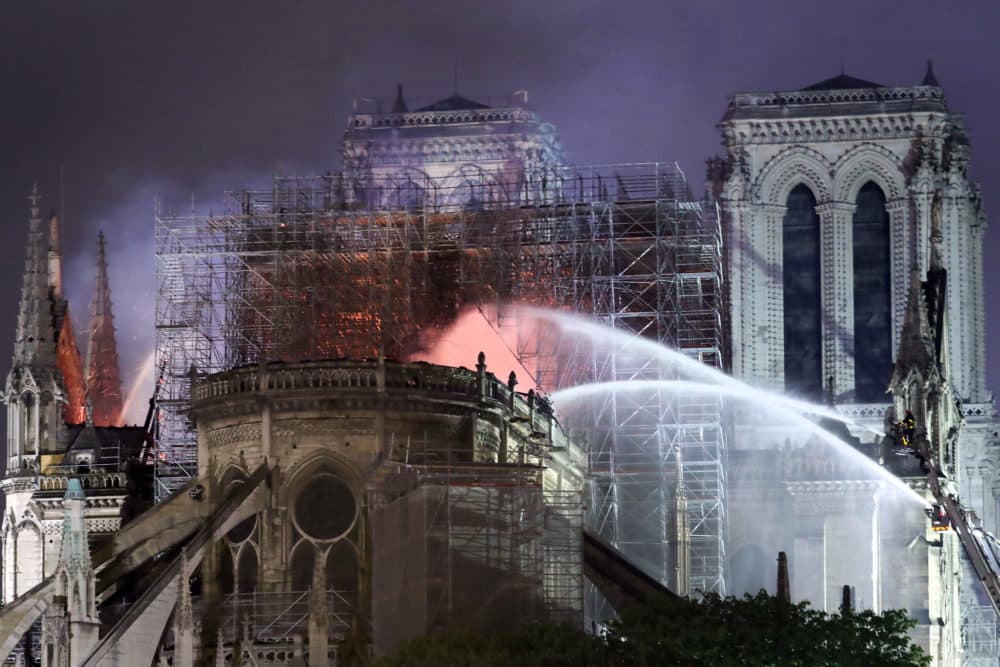
Karyn Miller-Medzon produced this interview and edited it for broadcast with Kathleen McKenna. Jack Mitchell adapted it for the web.
This segment aired on April 17, 2019.
